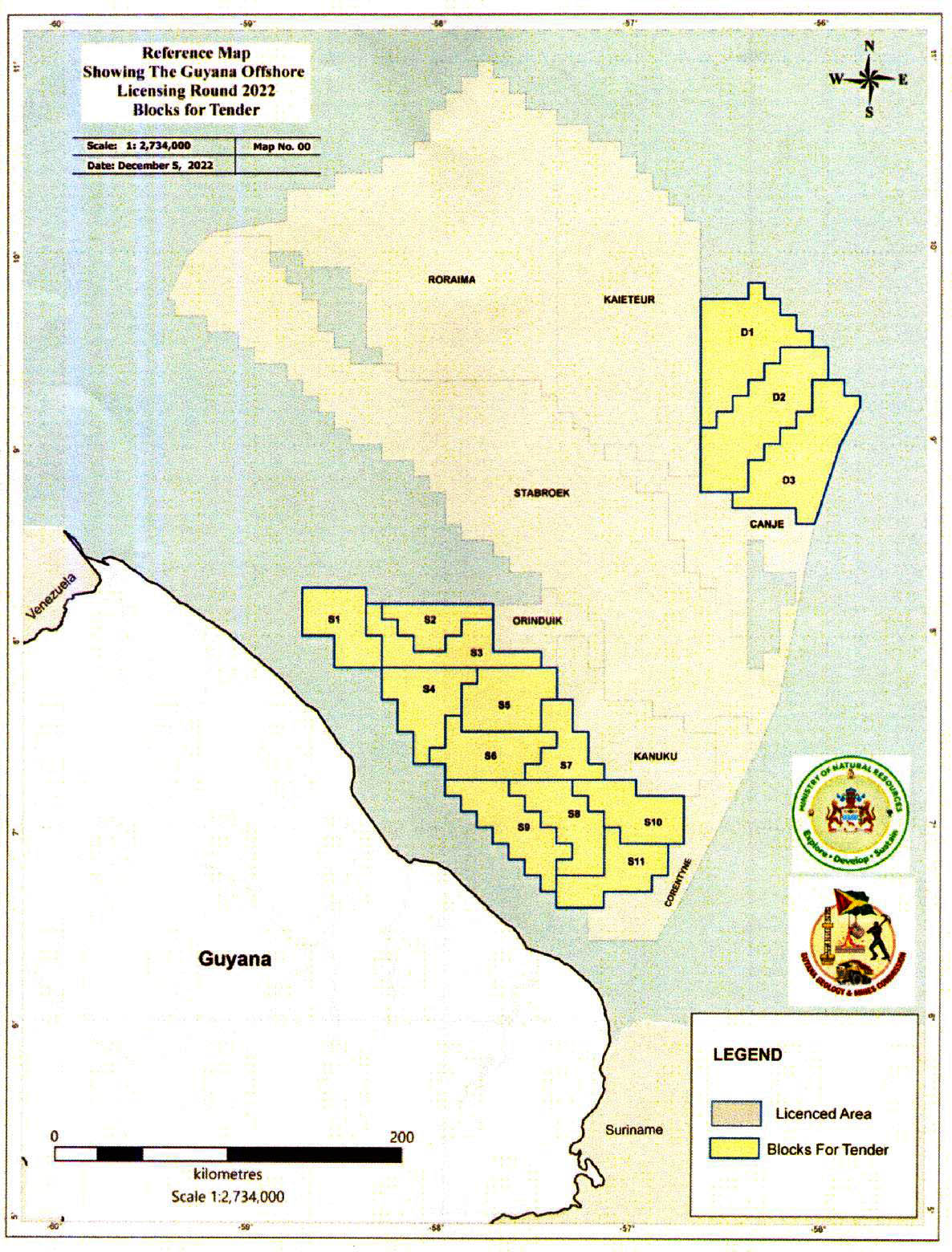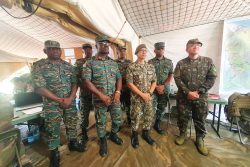Guyana is postponing by about one month its first offshore oil blocks auction as the country finalizes new terms of the country’s oil and gas regulatory framework, Vice President Bharrat Jagdeo told Reuters yesterday.
The Reuters report noted that Guyana has three times before delayed the offer of 14 offshore blocks intended to recruit new explorers and reduce the hold over its oil output by a group led by ExxonMobil Corp.
The oil auction postponement was due to local elections held this week, Jagdeo told Reuters. A new date for the auction has not been set, he said.
The delay comes as the country is finishing up terms of a model Production and Sharing Agreement (PSA) that will govern future contracts, Reuters noted.
The PSA is “practically finalized,” Jagdeo told Reuters, and a draft of the country’s new Petroleum Act will be posted on Monday on the Energy Resources Ministry’s website for two weeks of public consultation.
The government will evaluate comments and suggestions and seek parliamentary approval of the Petroleum Act before the action, Jagdeo said.
Exxon has previously said it was awaiting the new contract terms to evaluate its participation, Reuters said.
Questions have been raised in some quarters as to whether the postponements might be due to inadequate interest given the more stringent terms in the draft PSA compared to the one widely perceived to be generous which ExxonMobil and partners clinched in 2016.
The most recent delay in the auction was ostensibly to facilitate interest from India.
In August last year, Minister of Natural Resources, Vickram Bharrat told Stabroek News that government was still in the process of putting measures in place for the highly anticipated auctioning of available offshore blocks and consequently the auction would not be likely before the end of the third quarter of 2022.
He gave assurances that the planned auction will definitely happen before the end of the year.
“It will not be in September (2022) …we are looking at before the end of the year.” Bharrat had been asked a number of questions on the modalities of the planned auction and said they [the questions asked] cannot be answered as details were still being finalized.
On January 17th this year, President Irfaan Ali explained that Guyana had sought to galvanize interest from the Indian private sector so that they can participate in the auction of offshore blocks and government made clear to the Indian government, as it has with other nations, that they too can bid.
“There was also a clear undertaking that the private sector of India wants to partake in that auction… we also encouraged the Government of India to have their agency participate directly in the auction because we would like to see as much people [as possible]. Every government interested and would like to participate in the auction, we would like see participate,” he stressed.
And as he issued a public invitation for bidding at the auction, the President said that government hopes for maximum participation. “We are encouraging every single company. Let me say this very clear – Guyanese company, any company. You want to be part of the auction? Please come up. Any government in any part of the world, any company in any part of the world, you are free to be a part of the auction,” he emphasised.
Last December, as he stressed the need to expeditiously move to develop the country’s oil and gas resources, Ali had announced the launch of the licensing round for 14 offshore oil blocks.
“We have a situation where there is a timeframe on oil and gas development. We understand the direction in which the world is going, so it is very important for us to have developers who are serious, who will expeditiously move towards developments of the oil and gas resources.”
He added that April 14, 2023 has been set as the deadline for the close of submission for bids, and contracts are expected to be awarded by the end of May, 2023, following the evaluation of bids and negotiations.
On April 12, 2023, the Ministry of Natural Resources announced the extension of the Guyana 2022 Licensing Round’s bid submission deadline to July 15, 2023. April 14, 2023 had been the original deadline for submissions when the licensing round was launched on December 9, 2022 for 14 offshore blocks.
A statement from the ministry said then that the industry feedback and the advanced pace of modernising the oil and gas regulatory framework underscore the extended bidding period for the nation’s first competitive offshore oil and gas licensing round.
“The Round, officially launched on December 9, 2022, continues to receive strong global interest and the government has benefited from insightful feedback during the consultation periods of the Indicative Terms and Guidelines and the draft model production sharing agreements (PSAs).
“Concurrently, the government recognises that the new era of oil and gas development, facilitated by this current and future rounds, must be governed by a modern regulatory framework and has been thoroughly moving the finalisation of the model PSA, as promised in this government’s manifesto, and the overhaul and strengthening of the 1986 Petroleum (Exploration and Production) Act”, the statement said.
The statement added that the administration also recently concluded agreements with PGS Exploration (UK) Limited and CGG Data Services to reprocess additional 2D seismic data germane to the blocks for tender. Existing and prospective participants of the licensing round will benefit from the availability of further seismic data which can be licensed to better inform the bids submitted.
The blocks being offered in what is the country’s first licensing round are located in shallow and deepwater areas offshore, which are estimated to hold potential resources in excess of 25 billion barrels of oil equivalent (boe) and an estimated reserve in excess of 11 billion boe.
The minimum signature bonus requirement of US$10 million for shallow-water blocks and US$20 million for deepwater blocks were among new fiscal terms and conditions announced in November last year.
Ali assured that the process will be transparent and there will be different requirements and qualifications for shallow and deepwater operations reflective of international best practices given the different types of expertise and capabilities that are required.










